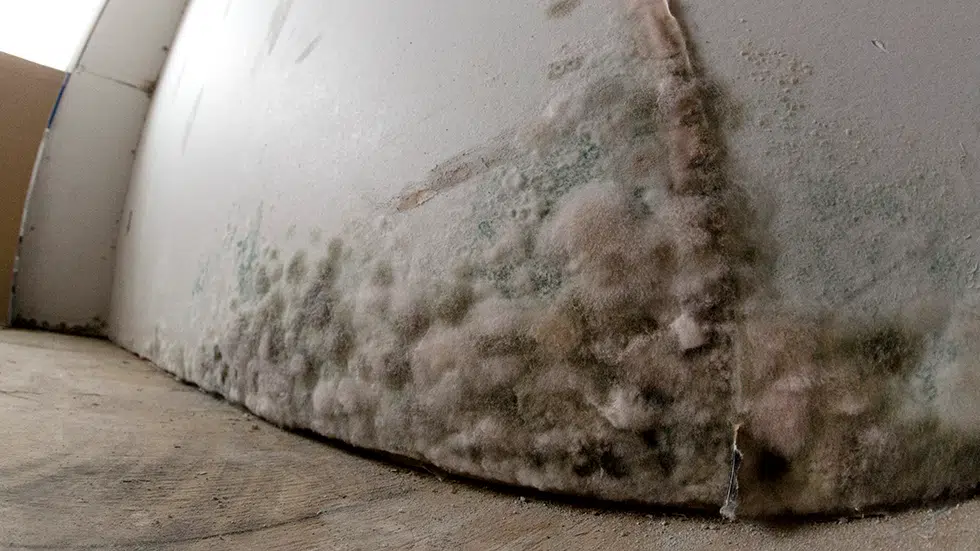
Overcrowding, mold among housing issues in Hatchet Lake
There aren’t enough homes to go around for residents of the Hatchet Lake Denesuline Nation, and the houses which do exist are often overcrowded and in need of repair.
During a tour of the community, local media were introduced to Jonas Sha’oulle, an operator at the local water treatment plant who shares his house with 21 other family members.
“We keep it busy, me and my wife, busy here and there, providing food,” Sha’oulle said. “We help each other.”
While the house may be crowded now, it wasn’t always that way. Sha’oulle’s house was built in 1992, when it was big enough for him, his wife and their two daughters. The family has since grown in size, and Sha’oulle said he wasn’t about to kick his daughters and their children out with nowhere to go. He said they have tried to apply for homes being constructed in the community, but they haven’t been successful in obtaining a residence yet.


